- About
-
Advocacy
- Submit Legislative Proposals to the ILA Public Policy Committee
- Advocacy Policies and Procedures
- More Than a Building
- Census 2020 Resources
- Creating or Changing Illinois State Library Law
- Illinois Minimum Wage Resources
- Intro to Property Taxes for IL Libraries
- ILA Public Policy Principles
- Legislative Issues
- Libraries and Immigration Enforcement
- Making Your Case
- Ready, Set, Advocate
- TIFs and Public Library Districts in Illinois
- Top Ten Advocacy Tips
- Unite Against Book Bans in Illinois
-
Committees
- Frequently Asked Questions (FAQ) about ILA Committees
- Advocacy Committee
- Awards Committee
- Conference Program Committee, 2025
- Conference Program Committee, 2026
- Diversity Committee
- Finance Committee
- Fundraising Committee
- ILA Reporter Advisory Committee
- Illinois Libraries Present Committee
- Illinois Public Library Standards Committee
- Intellectual Freedom Committee
- iREAD Committee
- Nominating Committee
- Public Policy Committee
- Reaching Forward North Committee
- Reaching Forward South Committee
- Events
-
Forums
- Frequently Asked Questions (FAQ) about ILA Forums
- Human Resources & Administration Forum (HRAF)
- Illinois Association of College & Research Libraries Forum (IACRL)
- Library Trustee Forum (LTF)
- Marketing Forum (MF)
- Resources & Technical Services Forum (RTSF)
- Retired Members Forum
- Small and Rural Libraries Forum (SARL)
- Students and New Professionals Forum (SANP)
- Young Adult Services Forum (YASF)
- Youth Services Forum (YSF)
- Initiatives
- Membership
- Publications
This bibliography represents books challenged, restricted, removed, or banned in 2015 and 2016 as reported in the Newsletter on Intellectual Freedom, Journal of Intellectual Freedom and Privacy, and in American Libraries Direct (AL Direct). (Dates prior to May 2015 indicate the controversy began earlier, but continued into 2015 or 2016.)
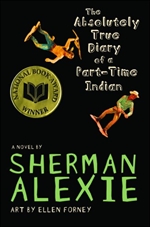
Alexie, Sherman
The Absolutely True Diary of a Part-Time Indian
Thorndike Press; Little, Brown
Challenged, but retained in the Brunswick County, N.C. schools (2015) because, “Appeals to a book the school board has previously ruled on will not be considered for two years.” A grandmother complained that the book “portrays bestiality and is pornographic.” Not disheartened by the decision to retain, she said that she achieved her objective with the latest challenge—to inform parents about the book. The challenged contemporary young adult book is a National Book Award winner. It tells the story of a teenager who grows up on the Spokane Indian Reservation but leaves to attend an all-white high school in a farm town. The book has strong language, including racial slurs.
Source: Newsletter on Intellectual Freedom, July 2015, pp. 117-18.
Bechdel, Alison
Fun Home: A Family Tragicomic
Houghton Mifflin; Mariner Books
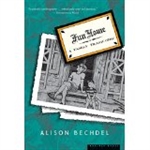
Challenged as recommended, not required, summer reading for incoming freshman at Duke University in Durham, N.C. (2015) because some students objected to the novel’s “depictions of lesbian sexuality, arguing that the book is borderline pornographic and they shouldn’t have been asked to read it.” Similar criticisms have been levied by opponents at other colleges and universities that have taught the book, including the College of Charleston—where state lawmakers threatened to defund the summer reading program for featuring it—and the University of Utah. Both institutions stood by the book, which tells the story of a lesbian coming to terms with her own sexuality as she over time discovers that her distant father is also gay. Challenged, but retained at Crafton Hills College, a community college in Yucaipa, Calif. (2015) despite a student’s request to remove the book because it was “objectionable.” One of the most celebrated graphic novels of its generation (a finalist for the 2006 National Book Critics Circle Award), the theatrical adaptation won the Tony Award for Best Musical, and numerous other awards, in 2015.
Source: Newsletter on Intellectual Freedom, Sept. 2015, pp. 147-49; 161-62.
Benioff, David
City of Thieves
Viking
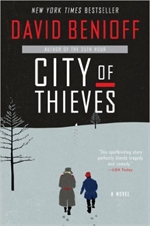
Challenged at the RePublic Schools in Nashville, Tenn. (2015) despite the charter school operator redacting and changing portions of the book that were deemed “inappropriate” for middle school students. The 2008 work of historical fiction chronicles the perils and lives of two boys in World War II-era Leningrad and includes profanity and sexually explicit scenes. The author was a co-creator of the HBO version of “Game of Thrones” and writer of the script for the film adaptation of The Kite Runner.
Source: Newsletter on Intellectual Freedom, Nov. 2015, pp. 144-45.
Bower, Bert, and Jim Lobdell
History Alive! The Medieval World and Beyond
Teachers’ Curriculum Institute
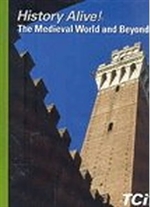
Challenged as a supplemental history textbook in the Roxbury Township, N.J. school district (2015) by two or three parents saying the book glorifies Islamic Jihad. After review by the district, the book was retained as a supplemental text from which seventh- and eighth-grade teachers could choose various activities that are educationally appropriate as they explore world cultures.
Source: Journal of Intellectual Freedom and Privacy, Spring 2016, p. 55.
Chbosky, Stephen
The Perks of Being a Wallflower
Pocket Book

Removed from the required high school freshman English curriculum in Wallingford, Conn. (2015) by the school superintendent after a parent complained that the book included references to “homosexuality, date rape, masturbation, and the glorification of alcohol use and drugs.” The novel was adapted into a film in 2012, which received mainly positive reviews; MTV, Us Weekly, and Complex named it as one of the best films of the year.
Source: Newsletter on Intellectual Freedom, May 2015, p. 69.
Choldenko, Gennifer
Al Capone Does My Shirts
Puffin

Challenged on the New York state elementary- and middle-school reading lists (2015) because complainants said the book “perpetuates negative stereotypes by touting the infamous gangster Al Capone.” The two sequels in Choldenko’s “Tales from Alcatraz” novels were also challenged: Al Capone Shines My Shoes and Al Capone Does My Homework. Capone was a prisoner at Alcatraz from 1935 to 1939. The book was named a Newbery Honor selection, an ALA Notable Children’s Book, and in 2007 it received the California Young Reader Medal.
Source: Newsletter on Intellectual Freedom, July 2015, p. 96.
Dawe, Ted
Into the River
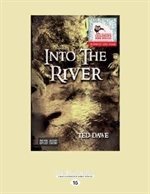
Mangakino University Press
Banned from sale and supply in New Zealand (2015) because it contains “highly offensive language, strong sexual descriptions (and) covers serious things like pedophilia and sexual abuse.” The country’s Film and Literature Board, following complaints from family advocacy group Family First, took the book out of circulation. It was the first book banned in New Zealand in the last twenty-two years. On October 14, 2015, the Film and Literature Board lifted the ban, ruling by a majority that while aspects of the book were offensive it did not merit an age restriction. The novel is a coming-of-age story, and is intended for a young adult audience. It was awarded the Margaret Mahy Book of the Year prize and also won the top prize in the Young Adult Fiction category at the 2013 New Zealand Post Children’s Book Awards.
Source: Newsletter on Intellectual Freedom, Nov. 2015, p. 146.
Dawson, James
This Book Is Gay
Hot Key Books
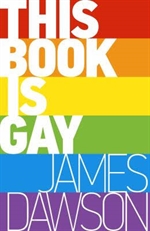
Wasilla, Alaska, Public Library (2015) moved its entire young adult nonfiction to the adult stacks in response to a complaint about Dawson’s book. Several Wasilla residents attacked the book at a city council meeting saying that “they didn’t want ‘gay books’ or books about gay people in the library at all.” For defending the sex education book for teens, the library director was branded as a pedophile in the highly controversial public debates.
Source: Journal of Intellectual Freedom and Privacy, Spring 2016, p. 53.
de Haan, Linda and Stern Nijland
King & King
Tricycle Press

Challenged at the Efland-Cheeks, N.C. Elementary School (2015) after a third-grade teacher read the book to deal with a case of bullying. The teacher said he read the book after a boy in his class was called gay in a derogatory way and told he was acting like a girl. Two parents said the book was inappropriate for children that age, and at least one said parents should have been notified in advance. The complaints were withdrawn after the teacher and vice principal resigned from the school. Originally written in Dutch, the book has been published in at least eight languages and a theatrical version has been performed from Vienna to Mexico City. The image of the princes kissing each other at their wedding on the final page has been cited by social conservatives as “gay-rights movements undermining religious freedom.”
Source: Newsletter on Intellectual Freedom, July 2015, pp. 118-19.
Dorfman, Ariel
Death and the Maiden
Penguin Books

Challenged as required reading in the Rumson-Fair Haven, N.J. high school (2015) because the play is “too sexually explicit for high school teens.” An ad hoc committee of teachers, school board members, and a parent recommended that the play be moved off the summer reading list and instead be taught during the school year so teachers can guide the students as they read it. The play is about a former political prisoner who was raped by her captors. Years later, she believes she has found her attacker—a man who drove her husband home after a flat tire. She ties up her attacker and puts him on trial, with her husband acting as his attorney. The play received the Laurence Olivier Award for Best New Play in 1992.
Source: Newsletter on Intellectual Freedom, Nov. 2015, pp. 142-43; Journal of Intellectual Freedom and Privacy, Spring 2016, pp. 55-56.
Foer, Jonathan Safran
Extremely Loud and Incredibly Close
Mariner Books

Removed from the Mattoon, Ill. High School curriculum (2015) because of “its use of lewd and possibly offensive materials.” The novel’s narrator is a nine-year-old, Oskar Schell, who lost his father in the 9/11 attack on the World Trade Center, and is convinced that his dad left a final message for him somewhere in the city. The book was named to the New York Public Library’s “Books to Remember” list and to the American Library Association’s Notable Books for Adults (2006). A film adaptation of the novel was released on January 20, 2012, starring Tom Hanks and Sandra Bullock.
Source: Newsletter on Intellectual Freedom, Nov. 2015, p. 141; Journal of Intellectual Freedom and Privacy, Spring 2016, p. 34.
Forman, Gayle
Just One Day
Speak
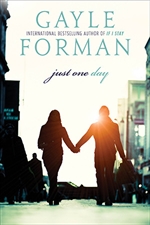
Challenged, but retained in the Rosemount, Minn. middle and high school libraries (2015) despite a parent’s concern about “a graphic sex scene, underage drinking [and] date rape” and also “inappropriate language.” The parent suggested the district remove it from all Rosemount-Apple Valley-Eagan libraries. The book centers on a teenager, Allyson, who spends one romantic day in Paris with a mysterious actor and later decides she must leave college and return to Europe.
Source: AL Direct, Nov. 24, 2015; Journal of Intellectual Freedom and Privacy, Spring 2016, pp. 53-54.
Gaiman, Neil
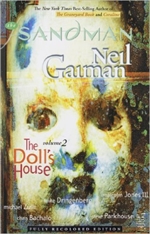
The Sandman, Vol. 2: The Doll’s House
DC Comics
Challenged, but retained at Crafton Hills College, a community college in Yucaipa, Calif. (2015) despite a student’s request to remove the book because it was “objectionable.” The series tells the tale of the ageless, anthropomorphic personification of Dream that is known by many names, including Morpheus. Begun in January 1989, the series concluded in March 1996.
Source: Newsletter on Intellectual Freedom, Sept. 2015, pp. 161-62.
Green, John
Looking for Alaska
Dutton Books

Challenged, but retained in the Lumberton Township, N.J. middle school (2015) despite a parent questioning its “sexual content.” Awarded the 2006 Michael L. Printz Award for Excellence in Young Adult Literature, this coming-of-age story traces the journey of Miles Halter, a misfit Florida teenager who leaves the safety of home for a boarding school in Alabama and a chance to explore the “Great Perhaps.”
Source: Newsletter on Intellectual Freedom, Nov. 2015, pp. 163-64.
Haddon, Mark
The Curious Incident of the Dog in the Night-Time

Doubleday
Pulled as a summer reading assignment in the Leon County, Fla. schools (2015) because of the book’s content and language. Moved from required reading to optional reading at Lincoln High School in Tallahassee, Fla. (2015) after receiving about a dozen complaints through telephone calls and e-mails about the book’s profanity and atheism. The award-winning book is about a 15-year-old autistic child who investigates the death of a neighbor’s dog.
Source: Newsletter on Intellectual Freedom, Sept. 2015, p. 146; Nov. 2015, pp. 140-41.
Harper, Kathryn
Snow White and the Seven Dwarfs
Pearson Education, Limited
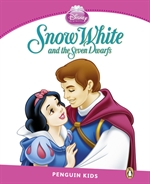
Removed from a Qatar school library (2016) after a book based on Disney’s “Snow White and the Seven Dwarfs” was deemed to contain ”indecent” illustrations. Officials from Qatar’s supreme education council intervened following a complaint from the father of a pupil at the Spanish SEK international school, based in the capital, Doha. It is not known which images caused offense, but the book cover shows a smiling Snow White being held by the prince, who in the story revives her with a kiss after she eats a poisoned apple, English-language website Doha News reported.
Source: Journal of Intellectual Freedom and Privacy, Spring 2016, p. 41.
Henson, Jim
For Every Child a Better World
Golden Books
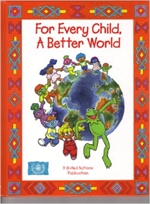
Challenged, but retained in the Marshfield, Wis. elementary schools (2015), despite objections from a school board member and chairwoman of the Central Wisconsin Tea Party who thought the book too graphic—namely, that its illustrations of some children living in poverty and violence are inappropriate for kindergartners. The book, published in 1993 by Golden Press, is “written” by Kermit the Frog (“as told to Louise Gikow and Ellen Weiss”). It was produced in cooperation with the United Nations as a fundraiser for the organization.
Source: Journal of Intellectual Freedom and Privacy, Spring 2016, pp. 56-57.
Hergé [Georges Remi]
Tintin in America
French & European Publications
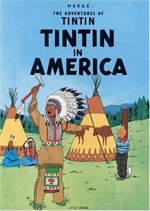
Pulled by the Winnipeg, Canada Public Library (2015) pending review due to stereotypical and racist depictions of indigenous peoples. The library eventually returned the book to general circulation, but in the adult collection, where it will be available to adult readers who want to see it for themselves or “carry on discussions with their children or others.”
Source: Newsletter on Intellectual Freedom, July 2015, p. 93.
Hernandez, Gilbert
Palomar: The Heartbreak Soup Stories
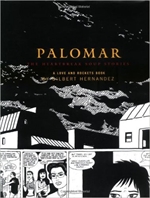
Restricted to students, under the age of eighteen, unless they have parental permission at the Rio Rancho, N.Mex. High School library (2015) because it was “too graphic” for a high school library shelf. Included in Time magazine’s Best Comics of 2003 list, and in 2005 was one of Time’s 100 best graphic novels of all time.
Source: Newsletter on Intellectual Freedom, Sept. 2015, p. 145.
Herthel, Jessica, and Jazz Jennings
I Am Jazz
Dial Books
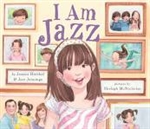
Canceled as a planned reading in the Mount Horeb, Wis. School District (2015) after the Florida-based Liberty Counsel group threatened to sue. The children’s book is the story of a transgender child based on the real-life experience of Jazz Jennings. On July 15, 2015, the reality television series featuring Jazz Jennings premiered to positive reviews.
Source: Journal of Intellectual Freedom and Privacy, Spring 2016, pp. 35-36.
Hopkins, Ellen
Glass
Margaret K. McElderry Books

Removed at the Standard Middle School in Bakersfield, Calif. (2015) along with the two other titles in the “Crank Trilogy” after a parent complained about the sex, violence, drugs, and alcohol in the book. The book follows the life of a girl named Kristina and her battle with addiction to methamphetamine. According to Simon and Schuster’s website, the book is recommended for children who are at least 14 years old. The novel was a New York Times bestseller, a Quills Award nominee, and was awarded the Book Sense Top 10, NYPL Recommended for Teens, PSLA Top Ten for Teens, Charlotte Award, IRA Young Adult Choices Award, Kentucky Bluegrass Award, SSLI Honor Book Award, and Gateway Readers Award.
Source: Journal of Intellectual Freedom and Privacy, Spring 2016, p. 31.
Hosseini, Khaled
The Kite Runner
Bloomsbury
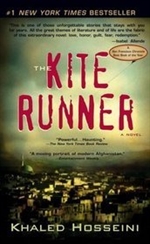
Suspended, but later reinstated as approved reading at the Buncombe County, N.C. schools (2015). The complainant, a self-described “conservative government watchdog,” cited state law requiring local boards of education to include “character education” in the curriculum. She also said schools must teach sex education from an abstinence-only perspective. The book is used in tenth-grade honors English classes and parents can request an alternative reading assignment for the child. The New York Times bestseller is set against a backdrop of tumultuous events, from the fall of Afghanistan’s monarchy through the Soviet military intervention, the exodus of refugees to Pakistan and the United States, and the rise of the Taliban regime. A number of adaptations were created following publication, including several stage performances and a graphic novel. The film of the same name was nominated for the Golden Globe Award for Best Foreign Language Film in 2007.
Source: Newsletter on Intellectual Freedom, July 2015, pp. 96-97.
Kean, Sam
The Disappearing Spoon: And Other Tales of Madness, Love, and the History of the World from the Periodic Table of the Elements
Little, Brown; Back Bay Books
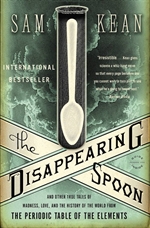
Challenged at the Discovery Middle School in Orlando, Fla. (2015) because “parts of the book are dark, and (the book has) some content that’s rather questionable for a 12- and 13-year-old reader.” The author views the periodic table as one of the great achievements of humankind, “an anthropological marvel.” The book is full of stories showing how each element affected the people who discovered the elements, for either good or bad. The book was nominated by the Royal Society in the United Kingdom as one of the top science books of 2010 and named an Amazon “Top 5” science book of the year.
Source: Newsletter on Intellectual Freedom, Nov. 2015, p. 140.
Kilodavis, Cheryl
My Princess Boy: A Mom’s Story about a Young Boy Who Loves to Dress Up
Aladdin
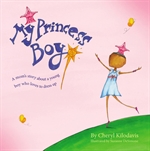
Challenged, but retained at the Hood County Library in Granbury, Tex. (2015) despite complaints that the book promotes “perversion” and the “gay lifestyle.” The Hood County Library Advisory Board voted to keep the book in the library. The controversy comes at the same time as the Hood County Clerk refused to sign off on same-sex marriage licenses. The book is based on the author’s son who prefers to wear clothes that some people consider feminine.
Source: Newsletter on Intellectual Freedom, July 2015, pp. 93-94; Sept. 2015, p. 160.
Kleinbaum, N. H.
Dead Poet’s Society
Bantam Books
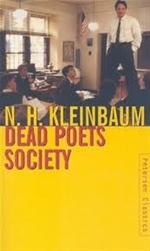
Challenged, but retained at the Jersey CUSD 100 in Jerseyville, Ill. (2015) despite a complaint by a local pastor who found the book “disturbing, very close to a strong, mild pornography… To me that book represents a [disrespectful attitude toward] parents and their judgments. It shows rebellion towards teachers, and has graphic immoral areas.” Set at the conservative and aristocratic Welton Academy in the northeastern United States in 1959, it tells the story of an English teacher who inspires his students through his teaching of poetry. The 1989 film starring Robin Williams received critical acclaim and was a box office success; it was also BAFTA’s best film and best foreign film in France and Italy. The movie also received the Academy Award for Best Original Screenplay.
Source: Journal of Intellectual Freedom and Privacy, Spring 2016, pp. 33-34.
Lahiri, Jhumpa
The Namesake

Recommended for removal by the ad-hoc literature committee of the Coeur d’Alene, Idaho, School District (2015) because it contains “descriptions of sexual conduct that are too explicit for high school seniors.” The novel examines being caught between two conflicting cultures with highly distinct religious, social, and ideological differences. A film adaptation of the novel was released in the United States, Canada, United Kingdom, and India in March 2006. The Indian-Bengali American author won the 2000 Pulitzer Prize for Fiction and was awarded the 2014 National Medal of Arts and Humanities at a White House ceremony.
Source: Journal of Intellectual Freedom and Privacy, Spring 2016, p. 33.
MacLaverty, Bernard
Cal
W. W. Norton & Company

Challenged as required reading in the Rumson-Fair Haven, N.J. high school (2015) because the novel is “too sexually explicit for high school teens.” The novel has been on and off the required reading list for juniors over recent years. An ad hoc committee of teachers, school board members, and a parent determined the novel was age-appropriate for the district’s juniors and seniors. Published in 1983, the novel is about a young Irish Catholic man involved in the Irish Republican Army who falls in love with the wife of a man murdered in an incident in which he was a getaway driver. The film of the same name was released in 1984 starring Helen Mirren.
Source: Newsletter on Intellectual Freedom, Nov. 2015, pp. 142-43; Journal of Intellectual Freedom and Privacy, Spring 2016, pp. 55-56.
Marillier, Juliet
Daughter of the Forest
Tor Books

Challenged, but retained in the Warrensburg, Mo. High School library (2015) despite a rape scene in the book. The book is an historical fantasy novel first published in 1999 and is loosely based on the legend of the Children of Lir and “The Six Swans” (a story that has many versions, including one by the Brothers Grimm). It was a finalist for the 2000 Aurealis Awards for Fantasy Novel and won the 2001 American Library Association Alex Award.
Source: Journal of Intellectual Freedom and Privacy, Spring 2016, p. 54.
Morrison, Toni
Beloved
Knopf

Challenged, but retained as an optional summer reading choice in the Satellite Beach, Fla. High School Advanced Placement classes (2015). A parent admitted not having read the entire book when he addressed the committee in September, but wanted the book banned because of what he called “porn content.” Challenged on the Fairfax County, Va. senior English reading list (2016) by a parent claiming “the book includes scenes of violent sex, including a gang rape, and was too graphic and extreme for teenagers.” The controversy led to legislation (House Bill 516) that calls for the Virginia Department of Education to create a policy that notifies parents of the content and then allows them to review the materials. The novelis inspired by the story of an African-American slave, Margaret Garner, who escaped slavery in Kentucky in late January 1856 by fleeing to Ohio, a free state. It won the Pulitzer Prize for Fiction in 1988, was a finalist for the 1987 National Book Award, and was adapted into a 1998 movie of the same name starring Oprah Winfrey. A New York Times survey of writers and literary critics ranked it the best work of American fiction from 1981 to 2006.
Source: Newsletter on Intellectual Freedom, Nov. 2015, p. 163; AL Direct, February 9, 2016 and March 4, 2016.
O’Brien, Tim
The Things They Carried
Houghton Mifflin Harcourt

Challenged in the Troup, Tex. School District (2015) because the book is “vulgar,” “complete garbage trash,” and “filled with sexual content and profanity.” The book is a collection of short stories about a platoon of American soldiers in the Vietnam War. Published in 1990, the book has received multiple awards such as France’s Prix du Meilleur Livre Etranger Award and the Chicago Tribune Heartland Prize, as well as being a finalist for the Pulitzer Prize and National Book Critics Circle Award.
Source: Newsletter on Intellectual Freedom, Nov. 2015, p. 145.
Pardi, Francesca, and Tullio F. Altan
Little Egg (Piccolo uovo)
Lo Stampatello
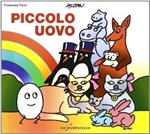
Banned by the Venice, Italy mayor along with 48 other children’s books from the city’s preschool libraries. Most of the books—destined for the city’s 28 nursery schools and kindergartens—never actually got to the libraries and are still packed up in boxes in various municipal offices. After an outcry—from residents, authors, publishers, librarian associations, and even Amnesty International—he whittled his list of banned books to just two. Pardi’s book, the tale of an unhatched egg that sees happiness in various family configurations, won the prestigious Andersen Prize in 2012, Italy’s top nod for children’s literature, even as a popular Catholic magazine cited it as a book to avoid.
Source: New York Times, August 19, 2015, p. A4.
Perritano, John
Amityville
Rosen Publishing

Challenged at the Wake County, N.C. schools (2015) because a parent charged the graphic novel “was talking about a man who murders his family and shows a man walking with his shotgun going to his parents and his sister and brother.” The book is listed at an interest level for grades three through six, and a reading level for grades two through three.
Source: Journal of Intellectual Freedom and Privacy, Spring 2016, p. 31.
Pittman, Gayle E.
This Day in June
Magination Pr.
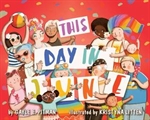
Challenged, but retained at the Hood County Library in Granbury, Tex. (2015) despite complaints that the book promotes “perversion” and the “gay lifestyle.” The Hood County Library Advisory Board voted to keep the book in the library. The controversy comes at the same time as the Hood County Clerk refused to sign off on same-sex marriage licenses. This book, about a pride parade, focuses on lesbian, gay, bisexual, and transgender history.
Source: Newsletter on Intellectual Freedom, July 2015, pp. 93-94; Sept. 2015, p. 160.
Satrapi, Marjane
Persepolis: The Story of a Childhood
Pantheon Books

Challenged, but retained at Crafton Hills College, a community college in Yucaipa, Calif. (2015) despite a student’s request to remove the book because it was “objectionable.” The book was a New York Times Notable Book, a Time magazine “Best Comix of the Year,” a San Francisco Chronicle and Los Angeles Times bestseller, the winner of the 2004 Alex Award, and named on the 2004 Best Books for Young Adults list. A film version was nominated for Best Animated Feature at the 80th Academy Awards in 2007.
Source: Newsletter on Intellectual Freedom, Sept. 2015, pp. 161-62.
Skloot, Rebecca
The Immortal Life of Henrietta Lacks
Crown

Challenged as a summer reading assignment in the Knoxville, Tenn. high school system (2015) because a parent claimed the nonfiction book “has too much graphic information.” Henrietta Lacks was a poor black tobacco farmer whose cells—taken without her knowledge in 1951—became one of the most important tools in medicine, vital for developing the polio vaccine, cloning, gene mapping, in vitro fertilization, and more. Winner of several awards, including the 2010 Chicago Tribune Heartland Prize for Nonfiction, the 2010 Wellcome Trust Book Prize, the American Association for the Advancement of Science’s Award for Excellence in Science Writing, the 2011 Audie Award for Best Non-Fiction Audiobook, and a Medical Journalists’ Association Open Book Award, the book was featured in more than 60 media outlets, including New York Times, Oprah, NPR, and Entertainment Weekly.
Source: Newsletter on Intellectual Freedom, Nov. 2015, p. 144.
Steinbeck, John
Of Mice and Men
Bantam; Penguin; Viking
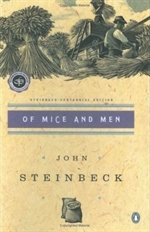
Recommended to be pulled from classroom instruction and made available only on a voluntary, small-group basis in ninth-grade English classes in Coeur d’Alene, Idaho (2015). Its use of profanity—“bastard,” for instance, and “God damn”—makes the book unsuitable. In addition to the profanity, the curriculum committee found the story of two migrant ranch hands struggling during the Great Depression too “negative.” The 1937 novella is one of the best-known works of the Nobel Prize- and Pulitzer Prize-winning author and has been adapted often for stage and screen. On June 1, 2015, the school board voted 4 to 1 to keep thenovella as an option for English teachers to assign their classes, rather than demote it to voluntary, small-group discussion as recommended by a school district committee that is reviewing novels taught in the schools.
Source: Newsletter on Intellectual Freedom, July 2015, pp. 94-95; AL Direct, June 3, 2015.
Stokstad, Marilyn
Art History: Eighteenth to Twenty-First Century Art, Third Edition
Prentice Hall
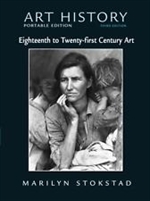
Challenged, but retained at the Williamson County, Tenn. schools (2015) despite concerns from citizens who said the book was “political and too provocative.”One citizen commented that “It’s troubling to me that we can’t get a history book that puts a positive look on America. Ronald Reagan and Margaret Thatcher aren’t even mentioned.”The book is to be used in the Art and the American Identity class, a special course that will only be available to seniors who have already taken Advanced Placement (AP) Art History at Independence High School. The class had seven students enrolled.
Source: Newsletter on Intellectual Freedom, Nov. 2015, p. 164.
Summers, Courtney
Some Girls Are
St. Martin’s Griffin

Pulled from the freshmen Honors English I summer reading list at West Ashley High School in Charleston, S.C. (2015) after a parent complained about the novel’s dark and explicit content. The book is about a high school senior who is ostracized and bullied by her former friends after she reports an attempted rape by a popular boy.
Source: Newsletter on Intellectual Freedom, Sept. 2015, pp. 146-47.
Tamaki, Mariko, and Jillian Tamaki
This One Summer
First Second

Removed from one elementary school library and restricted at three Florida high school libraries in Longwood (2015) in response to a complaint from a parent about the graphic novel’s language. It is a coming-of-age story about two preteen friends, Rose and Windy, during a summer in Awago, a small beach town. The book won the 2015 Printz Honor, Caldecott Honor award, Eisner Award, and the 2014 Ignatz Award for Outstanding Graphic Novel.
Source: Journal of Intellectual Freedom and Privacy, Spring 2016, pp. 32-33.
Texier, Ophélie
Jean Has Two Moms (Jean a deux mamans)
French and European Publications

Banned by the Venice, Italy mayor along with 48 other children’s books from the city’s preschool libraries. Most of the books—destined for the city’s 28 nursery schools and kindergartens—never actually got to the libraries and are still packed up in boxes in various municipal offices. After an outcry—from residents, authors, publishers, librarian associations, and even Amnesty International—he whittled his list of banned books to just two.
Source: Newsletter on Intellectual Freedom, Sept. 2015, pp. 149-50.
Twain, Mark [Samuel L. Clemens]
The Adventures of Huckleberry Finn
Bantam; Bobbs-Merrill; Grosset; Harper; Holt; Houghton; Longman; Macmillan; NAL; Norton; Penguin; Pocket Books

Removed from the Montgomery County, Penn. school curriculum (2015) after a group of students said the book’s use of the N-word made them uncomfortable and the students thought the school was not being inclusive. Since its publication in 1884, the book has caused controversy starting in 1885 when it was banned in Concord, Mass. as “trash and suitable only for the slums.”
Source: Journal of Intellectual Freedom and Privacy, Spring 2016, pp. 34-35.
Vaughan, Brian
Y: The Last Man, Vol. 1
Vertigo

Challenged, but retained at Crafton Hills College, a community college in Yucaipa, Calif. (2015) despite a student’s request to remove the book because it was “objectionable.” The dystopian science fiction comic book series was nominated for the first Hugo Award for Best Graphic Story. Vaughan won the 2005 Eisner Award for Best Writer and the 2008 Eisner Award for Best Continuing Series. In 2015, the Eisner Awards entered Vaughan into the Comic Book Hall of Fame.
Source: Newsletter on Intellectual Freedom, Sept. 2015, pp. 161-62.
Walls, Jeannette
The Glass Castle: A Memoir
Scribner
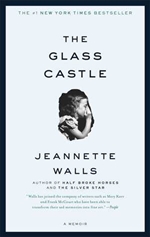
Suspended at the Ambridge, Pa. High School (2015) because the book is “racist and sexually explicit.” The challenged memoir is about growing up in poverty with a father who spent his money on alcohol and a mother who became homeless. Published in 2005, the memoir spent a total of 261 weeks on the New York Times bestseller list and is now under development as a film by Paramount. By late 2007, The Glass Castle had sold over 2.7 million copies, had been translated into 22 languages, and received the Christopher Award, the American Library Association’s Alex Award (2006), and the Books for Better Living Award.
Source: Newsletter on Intellectual Freedom, Nov. 2015, pp. 143-44.
Winter, Jeanette
The Librarian of Basra: A True Story from Iraq
HMH Books for Young Readers

Challenged in the Duval County, Fla. public schools (2015) because a coalition of parents believes the book is inappropriate for promoting another religion that is not Christianity and is too violent for young children. Critics claim the book promotes “the Koran and praying to Muhammad.” The true story is about a librarian who sneaks books out of a library during the U.S. bombings in Iraq. The librarian works with members of the community to keep the books safe until the war is over and a new library can be built. Duval County public school libraries have a banned books list of ten literary works, including Roald Dahl’s Revolting Rhymes, Tom Robbins’ Even Cowgirls Get the Blues, and Tony Kushner’s Angels in America—which has also been removed from a textbook, reported The Guardian.
Source: Newsletter on Intellectual Freedom, Sept. 2015, pp. 145-46.
Winter, Jeanette
Nasreen’s Secret School: A True Story from Afghanistan
Beach Lane Books

Challenged in the Duval County, Fla. public schools (2015) because a coalition of parents believes the book is inappropriate for promoting another religion that is not Christianity and is too violent for young children. Critics claim the book promotes “the Koran and praying to Muhammad.” Duval County public school libraries have a banned books list of ten literary works, including Roald Dahl’s Revolting Rhymes, Tom Robbins’ Even Cowgirls Get the Blues, and Tony Kushner’s Angels in America—which has also been removed from a textbook, reported The Guardian. Challenged at the Eau Claire, Wis. schools (2015) because the book contains an Islamic prayer. The book is about the Taliban taking control of an Afghan village and preventing girls from going to school. After Nasreen’s father is kidnapped and presumed killed, her grandmother smuggles her each day to an underground school where she can learn to read and write.
Source: Newsletter on Intellectual Freedom, Sept. 2015, pp. 145-46; Journal of Intellectual Freedom and Privacy, Spring 2016, p. 35.

 iREAD Summer Reading Programs
iREAD Summer Reading Programs Latest Library JobLine Listings
Latest Library JobLine Listings